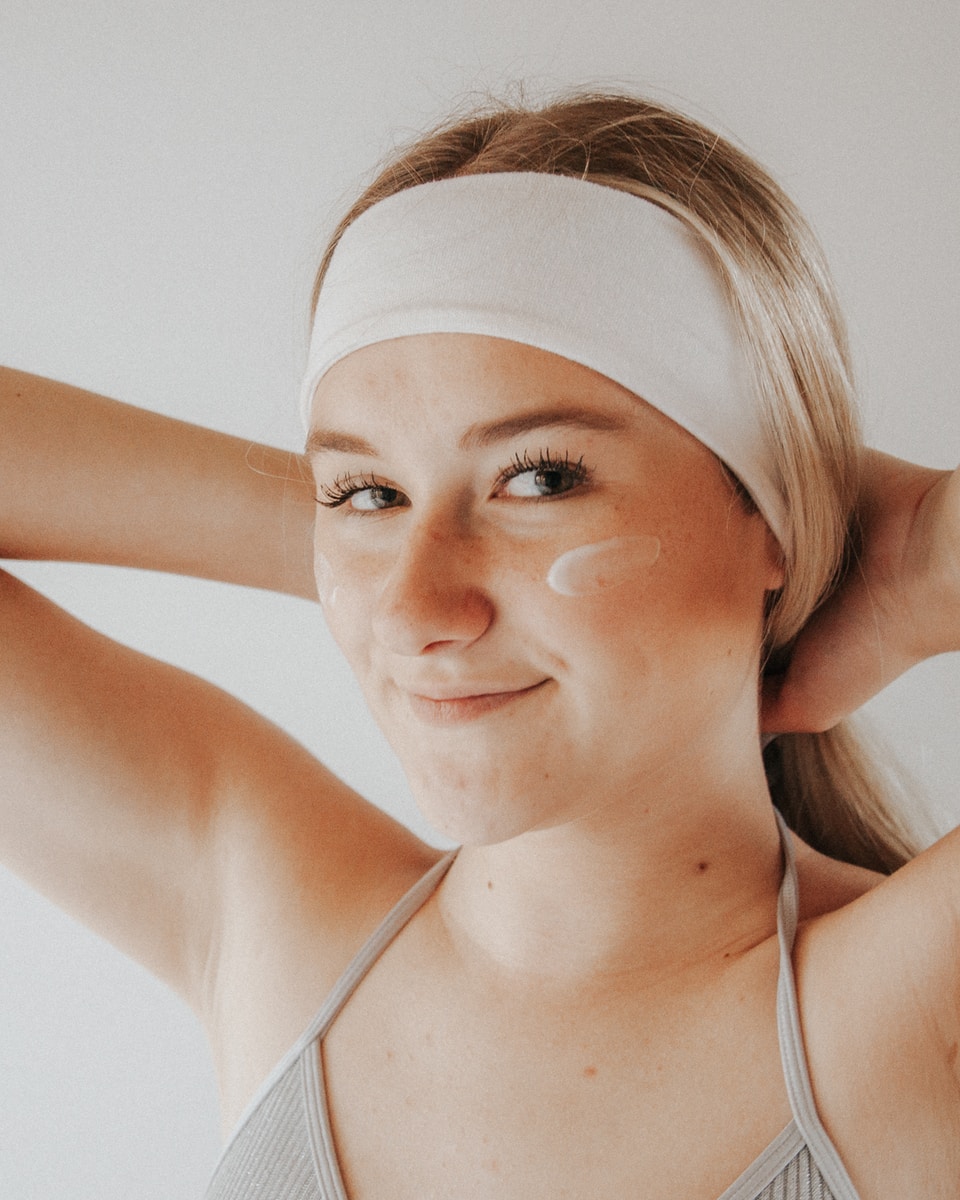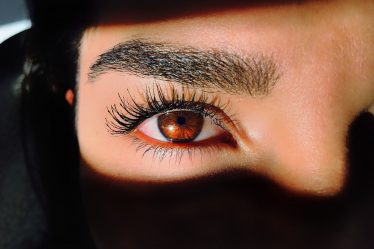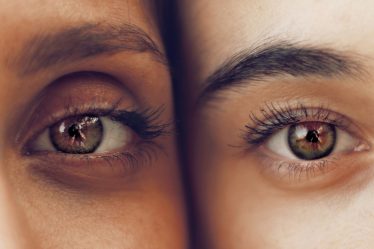
Redditors and TikTokers swear that being as slimy as a snail when going to bed is the key to baby-soft skin. This skin hack, called slugging, involves slathering an occlusive product like Vaseline on your face before bed to help lock in moisture.
The result: Legend says you will go to sleep mucus-slicked, and then wake up glowing and rejuvenated.
Dr. Elaine Kung agrees that slugging is a great way to get smoother, more youthful skin. This “trend” has been around for years.
Kung states that “the idea of layering thick occlusive creams as the final step in a nighttime regimen is not new.” Not only have derms been recommending it for decades, but “purveyors of K-beauty have been pushing this practice in their 10-step beauty routines for years!”
Here are some ways to live the slug life and include slugging into your skincare routine
What exactly is slugging?
Slugging is the process of applying an occlusive emollient cream (such as the ones made by Aquaphor, CeraVe, and Vaseline). Kung says that slugging “helps to reduce trans-epidermal moisture loss.”
An occlusive is basically a product that prevents moisture from evaporating from your skin. All those serums that you’ve applied? They won’t be going anywhere. It keeps the elements out so that any dry air from your heater doesn’t get into your skin.
That’s why petrolatum (aka petroleum jelly) is often medically recommended to keep the skin hydrated during dry winter days, dermatologist Cheryl Rosen explains. It’s also sometimes recommended for treating conditions like eczema and psoriasis.
People with different skin types swear by it. It might not work for people with more sensitive skin.
Your favorite TikToker did not invent it. Slugging has been part of K-beauty for many generations, just as many Black women’s beauty routines.
Is slugging really beneficial?
If in doubt, fight it out. The pros say yes.
Research suggests that when the lipids in your skin are depleted – whether as a result of your genes, the weather, or too many acidic serums – applying petrolatum can help restore your skin.
“Because the skin’s barrier is protected overnight, people wake up with softer and glowing skin,” Kung explains. (And, full disclosure: sometimes, a greasy pillowcase.)
A small 2016 study suggests that petrolatum may increase peptide regulation at the skin’s surface. This is a promising sign for your dermis, as peptides are key building blocks of proteins such as collagen and elastin.
Kung says that some people are more likely to benefit from it:
- Have atopic dermatitis or any other type of eczema
- Have irritated, dry, or chapped skin
- Live in dry or cold climates
Rosen states that “slugging is very effective at retaining moisture in the skin.” The following are the benefits of using petroleum jelly:
- It’s non-irritating. Sensitive skin types, rejoice: “It does not contain any harsh chemicals or other potentially harmful ingredients.”
- It is super hydrating. “It’s effective at moisturizing .dry skin, which can help to counteract the drying effects of winter weather or central heating.”
- It protects your skin from environmental damage and windburn.
- It’s cheap. Who cares if you can’t afford Sunday Riley when you can pick up some Vaseline for a few bucks?
But, can slugging clog up your pores?
You might consider skipping slugging if your skin sparkles like a diamond.
Kung said that slugging isn’t for everyone. She explains that slugging can trap oils and moisture in the skin. This can lead to underlying conditions such as the following:
- Oily skin
- Acne-prone skin
- Clogged pores
- Whiteheads or blackheads
- Seborrheic dermatitis
“I have had to simplify and de-slug many of my acne patients’ skin care routines because they have been layering oils and sealing them with petrolatum, shea butter, and beeswax for months to years,” Kung says.
She also points out that patients may have been engaging in slugging, even though they didn’t know it. “Many people have been using toners, serums, or lotions with plant-derived oils and then applying a moisturizing cream. They believe that the other steps in their skin-care routines are not moisturizing enough.”
If your skin is already oily or acne-prone, you don’t have to seal in any moisture.
Rosen explains that petroleum jelly is a thick, heavy substance that can build up on the skin’s surface to block pores. “This can lead to the development of blackheads and whiteheads, as well as an increase in the number of pimples.”
The American Academy of Dermatology agrees: Petroleum-based products can indeed cause breakouts. This trend is not for you if you have a tendency to get zits.
What skincare products are suitable for slugging?
Okay, slugger. Are you ready to test the products? These are some of the most effective and popular slugging products.
Pricing guide
- $= under $5
- $$= $5-$10
- $$$= more than $10
1. Vaseline
Price: $
Rosen recommends Vaseline 100 percent pure petroleum jelly as her best choice for slugging. She also recommends it for healing chapped lips or sun-damaged skin.
Vaseline, if you don’t require any extra moisturizing agents in your petrolatum is your best and cheapest option. Vaseline does contain a grease component that most people are familiar with, but it is not a bad choice for serious sluggers. However, the price for good results is worth it.
2. Aquaphor
Price: $$$
Not quite a lotion, not quite a cream. Aquaphor is loved by many derms, regardless of what it is. Aquaphor’s classic formula includes 41 percent petrolatum and hydrating ingredients such as mineral oil, lanolin, or glycerin.
Aquaphor’s moisture content is what really makes it “aqua”. Some people love Aquaphor, while others hate it. It feels very wet and will remain that way until you remove it.
Keep in mind that lanolin is derived from sheep’s wool and might not jibe well with some sensitive skin types. If your skin is sensitive or irritable, lanolin can cause allergic reactions. You should avoid lanolin products if you are vegan.
3. CeraVe Healing Ointment
Price: $$$
Is it possible that sluggers are to blame for the constant selling of this iconic ointment? Probably. CeraVe products are often found on the Amazon personal care top ten list.
This ointment contains petrolatum and ceramides. These will give your skin extra moisture.
Bonus: This healing cream has the National Eczema Association Seal of Approval.
4. Cetaphil Healing Ointment
Price: $$
Hypoallergenic, fragrance-free, and dermatologist-recommended – what more can a slugger ask for?
This formula contains lots of petrolatum and a lot of shea butter. It might be the right product for you if your skin is extremely dry. It might be a bit too oily for people with oilier skin.
This one also comes with the National Eczema Association Seal of Approval.
How to create a powerful skincare regimen
Are you bitten by the slugging bug Here are some ways to incorporate slugging into your nighttime skincare routine.
1. Cleanse
You know what you should do: Wash your skin and dry it with a towel.
2. Optional: Tone
If you have dry skin, you might want to skip toning or astringent, which will further strip your skin. You can also use tea oil, witchhazel, or any other chemical exfoliator.
3. Use serum
Serum time. It doesn’t matter if you are a stalwart of vitamin C or a fervent peptide lover, make sure that your pick suits your skin type and your slugging habits.
Kung says, “If you have irritable skin, don’t layer AHA, BHA, retinol products and then seal it in with petrolatum.” Basically, sensitive skin just can’t handle having all those acids locked in.
“If you have oily skin, don’t layer jojoba and moringa oil and then seal it in with shea butter,” she adds. (That’s a recipe for way too much oil.)
“But, if your eczema is severe, then moisturize, moisturize, and moisturize!”
Talk to a dermatologist if you are unsure.
4. Optional: Moisturize
Some drier skin types may benefit from an extra layer of moisturizer before the petroleum seals it all up. You might need to experiment to find the best solution for you.
5. Get slugging!
It’s time to get slimy. This is a personal decision. Some people apply it liberally, others rub in a few drops on their T-zone. It really all depends on you.
Try a few drops here and there to see if your skin reacts. You can add more if it is still dry.
What length of time can you slug it?
Your skin is the only limit when it comes to slugging. It all comes down to your skin’s natural oil production. If your skin looks oily from slugging, you might want to let it rest. Ditto if you’re getting breakouts.
Kung states, “My main advice to you is to get to know your skin. And if you can’t seem to understand it, maybe head to a derm who can.”
If your skin is healthy and glowing, you can continue to slug it out.
Takeaway
To seal in moisture, slugging is the act of applying an occlusive product to your skin. This is usually the last step of a nightly skincare routine.
People with oily skin or acne-prone skin might want to skip it. However, those who live in harsh winter conditions or suffer from skin conditions such as eczema or dry skin may be able to benefit. Talk to a dermatologist if you are unsure if it is right for you.



